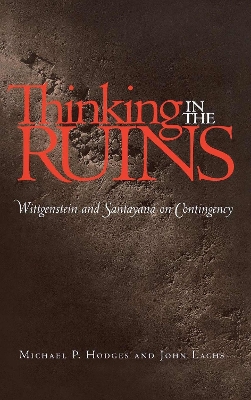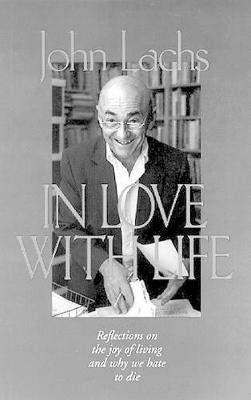Vanderbilt Library of American Philosophy
3 total works
Santayana is often regarded as an aesthetician and metaphysician, but Wittgenstein's work is usually seen as antithetical to the philosophical approaches favored by Santayana. In this insightful new study, Michael Hodges and John Lachs argue that behind the striking differences in philosophical style and vocabulary there is a surprising agreement in position. The similarities have largely gone unnoticed because of their divergent styles, different metaphilosophies, and separate spheres of influence. Hodges and Lachs show that Santayana's and Wittgenstein's works express their philosophical responses to contingency. Surprisingly, both thinkers turn to the integrity of human practices to establish a viable philosophical understanding of the human condition.
Both of these important twentieth-century philosophers formed their mature views at a time when the comfortable certainties of Western civilization were crumbling all around them. What they say is similar at least in part because they wished to resist the spread of ruin by relying on the calm sanity of our linguistic and other practices. According to both, it is not living human knowledge but a mistaken philosophical tradition that demands foundations and thus creates intellectual homelessness and displacement. Both thought that, to get our house in order, we have to rethink our social, religious, philosophical, and moral practices outside the context of the search for certainty. This insight and the projects that flowed from it define their philosophical kinship.
Thinking in the Ruins will enhance our understanding of these monumental thinkers' intellectual accomplishments and show how each influenced subsequent American philosophers. The book also serves as a call to philosophers to look beyond traditional classifications to the substance of philosophical thought.
Ancient philosophers used to write how-to manuals for living. The classical American philosophers Dewey, Santayana, James, and Royce all published works that dealt with everyday concerns and issues that affected all people. Yet today, many academic philosophers talk mostly among themselves about technical points in logic or semantics or other abstruse subjects less applicable to everyday life.
Not John Lachs. In this engaging book, Lachs reminds us of the centrality of philosophy to life. He provides us with a philosophy of living and a framework to apply to the most basic and critical issues we face. He enables us to see things in new and expansive ways. Fundamental ethical choices such as suicide and euthanasia, the trying and often meaningless circumstances of modern life, confusions of ends and means, and just being tired of it all-- these concerns all come under Lachs's discerning eye. He advocates confronting the complexities of life head on, with courage and persistence. Only through our own efforts and activities can we place our experiences in new and broader contexts, enabling us to find release from despair and frustration and to derive the most out of even the worst situations.
Lachs shows that the good life involves joyous energy to the end. In Love with Life will help readers tap life's resources to face inescapable sadness, loss, and death. This is a book for everyone who has ever wondered how to reconcile the pervasive joys and frequent doubts that life presents to all of us.
Thoughtful readers will find both inspiration and tough-minded virtue in this book.


